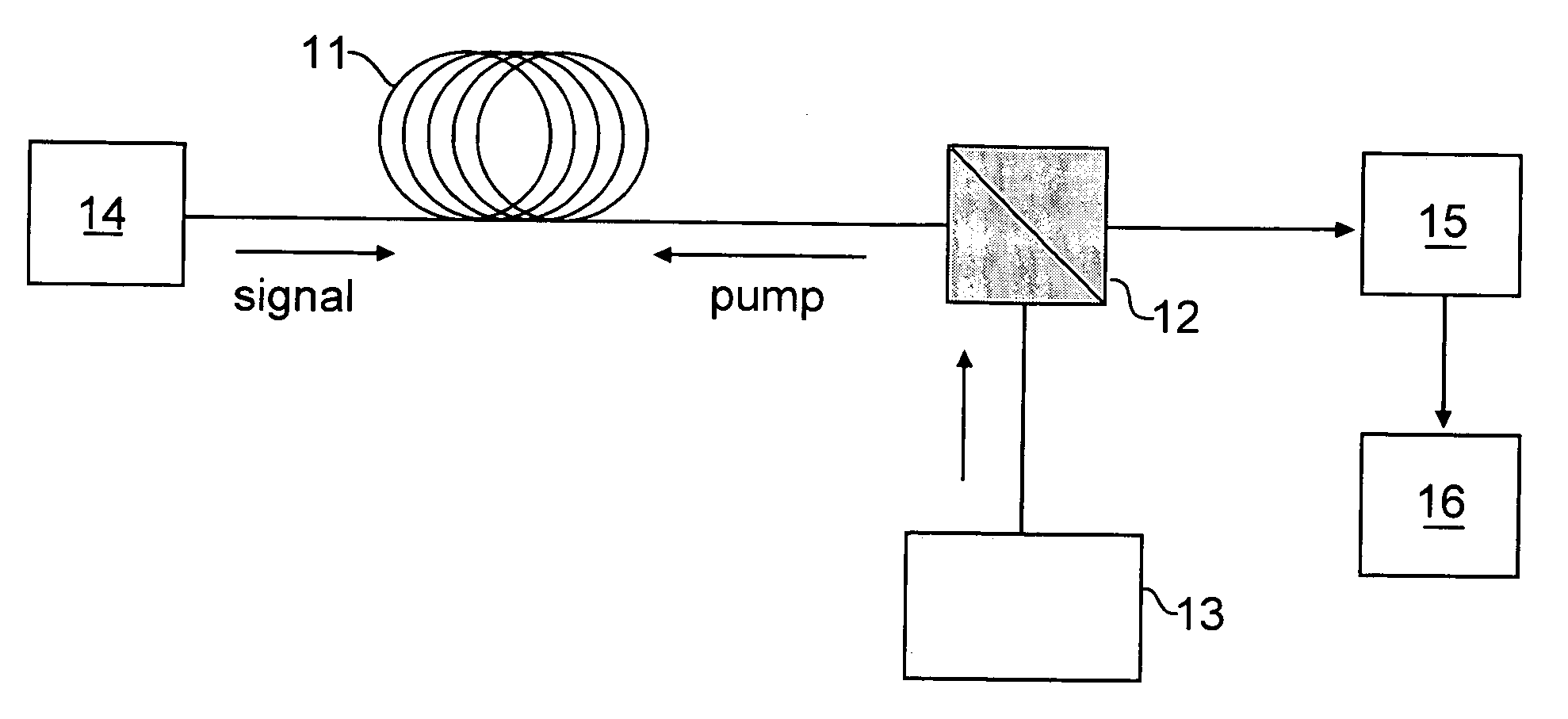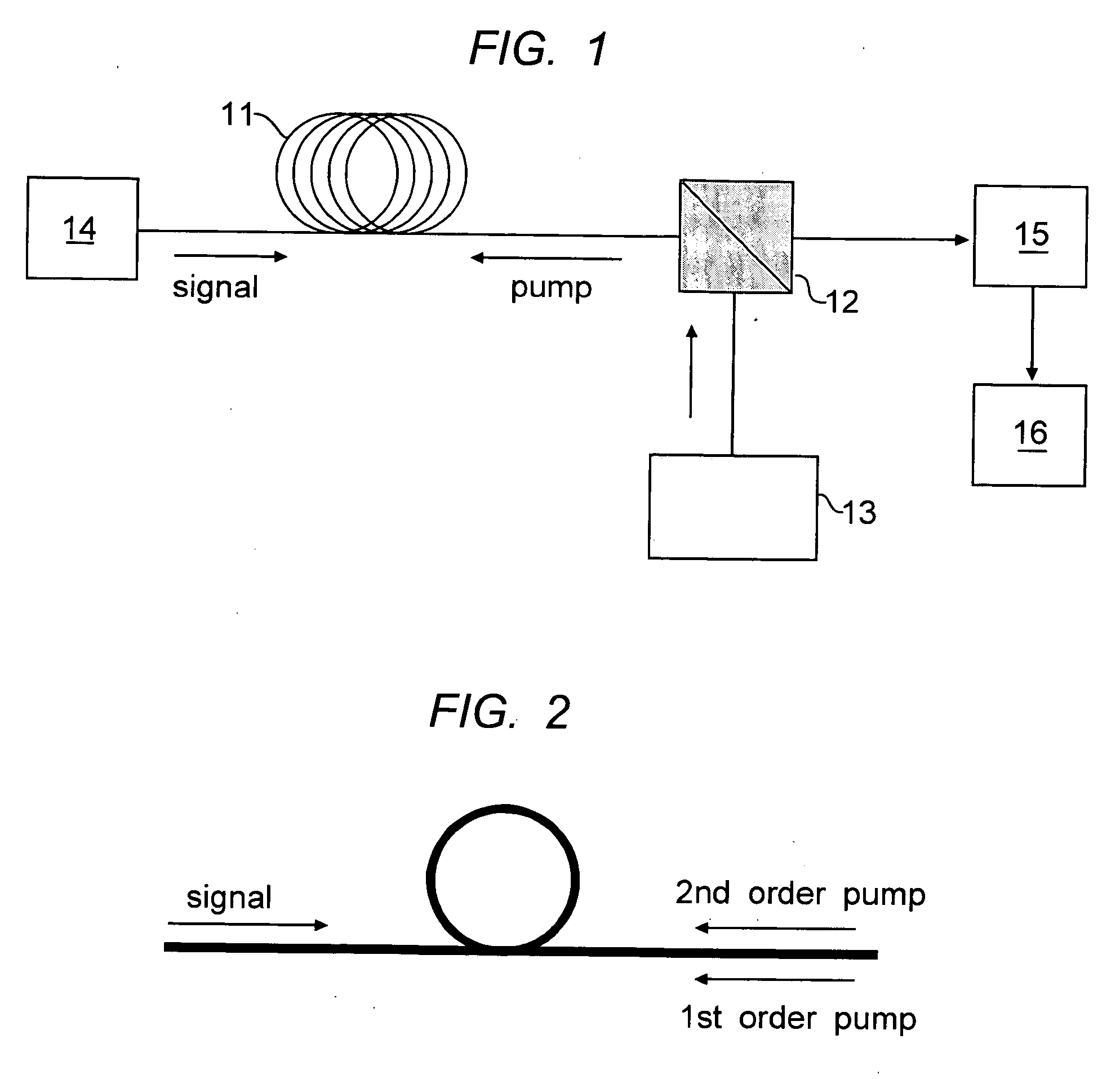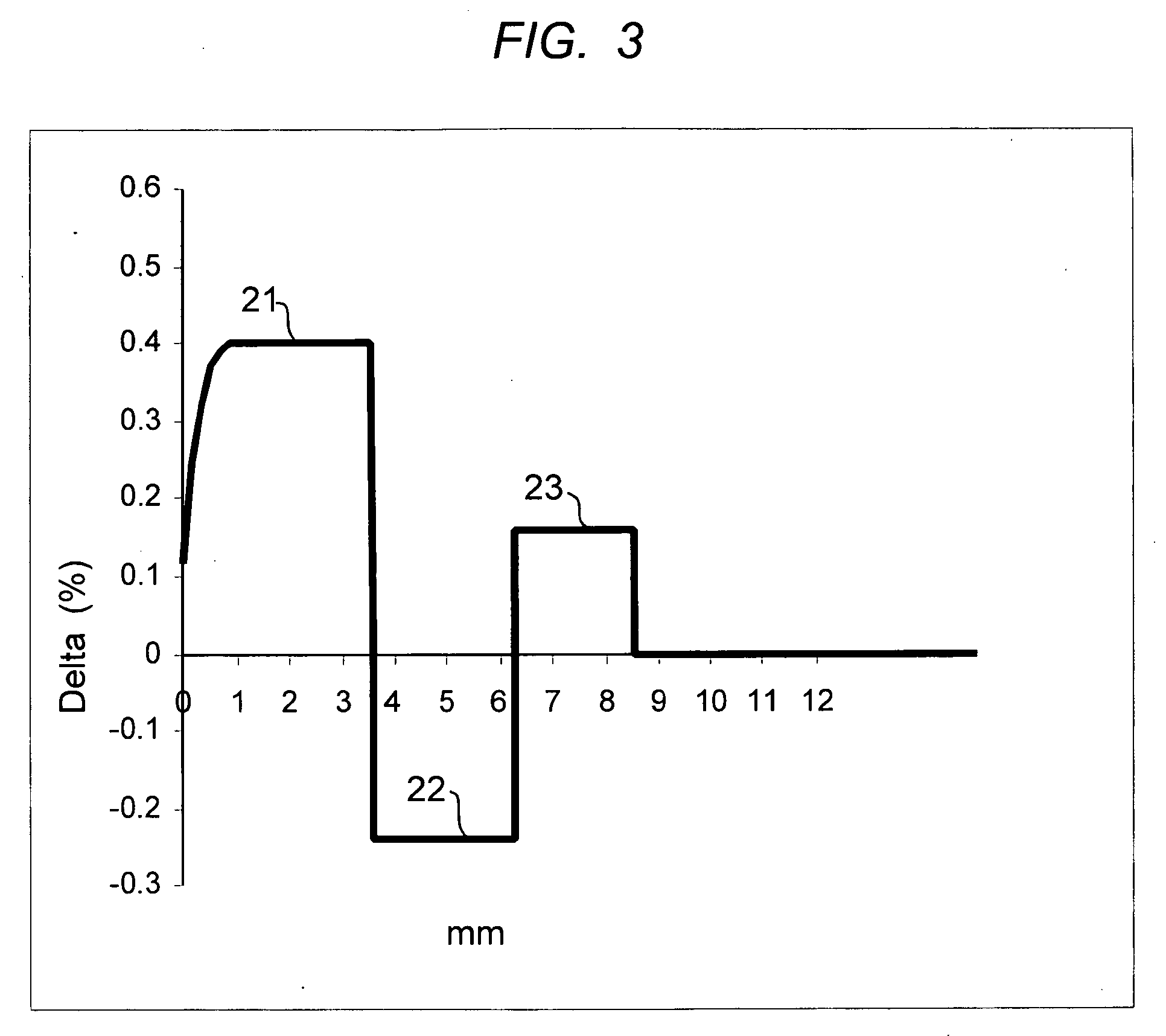Raman fiber amplifier communication systems
a technology of amplifiers and fibers, applied in the field of optical fibers, can solve the problems of increasing transmission errors, and difficult to reach the objective, and achieve the effects of reducing system cost and complexity, reducing system cost, and reducing system cos
- Summary
- Abstract
- Description
- Claims
- Application Information
AI Technical Summary
Benefits of technology
Problems solved by technology
Method used
Image
Examples
Embodiment Construction
[0032] Referring to FIG. 1, an optical fiber communications system is shown with a distributed Raman optical fiber amplifier. The transmission span 11 represents a fiber of substantial length, typically in excess of 1 km. It will be evident to those skilled that the figures in this description are not drawn to scale, and the elements are schematically shown. For purposes of illustration, FIG. 1 shows a distributed amplifier where the amplifier medium is the normal transmission span. For discrete amplifiers, a dedicated length of optical fiber can be used for the amplification medium. The length of fiber represented by 11 is typically at least 500 m in length to allow for the optical interactions that produce signal amplification. The amplifier is end pumped, and counter pumped, as shown in the figure, by pump source 13 coupled into the core of the fiber through coupler shown schematically at 12. The system transmitter is shown at 14 and the system receiver at 16. A dispersion compen...
PUM
| Property | Measurement | Unit |
|---|---|---|
| area | aaaaa | aaaaa |
| Cable cutoff wavelength | aaaaa | aaaaa |
| wavelengths | aaaaa | aaaaa |
Abstract
Description
Claims
Application Information
 Login to View More
Login to View More - R&D
- Intellectual Property
- Life Sciences
- Materials
- Tech Scout
- Unparalleled Data Quality
- Higher Quality Content
- 60% Fewer Hallucinations
Browse by: Latest US Patents, China's latest patents, Technical Efficacy Thesaurus, Application Domain, Technology Topic, Popular Technical Reports.
© 2025 PatSnap. All rights reserved.Legal|Privacy policy|Modern Slavery Act Transparency Statement|Sitemap|About US| Contact US: help@patsnap.com



